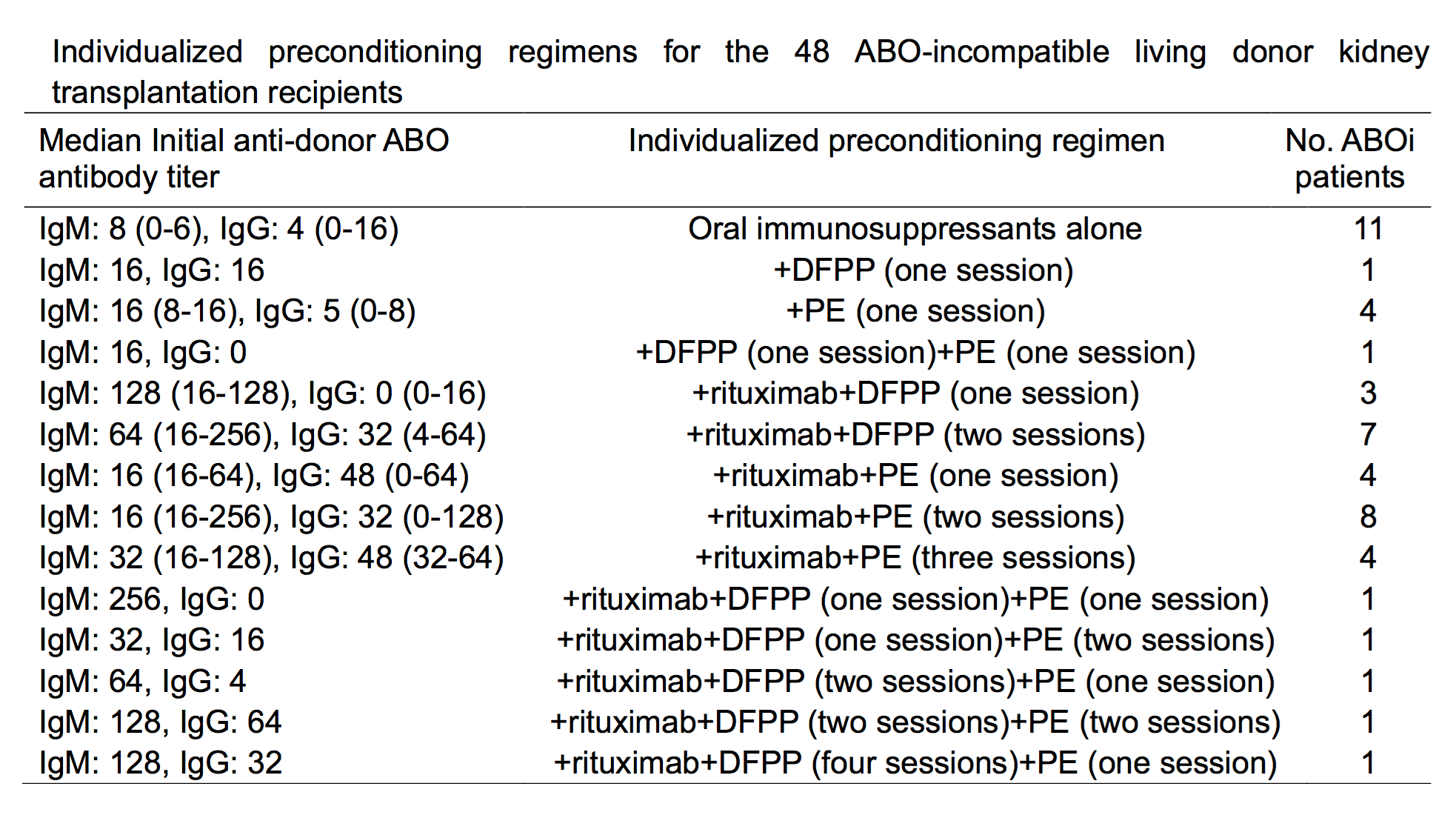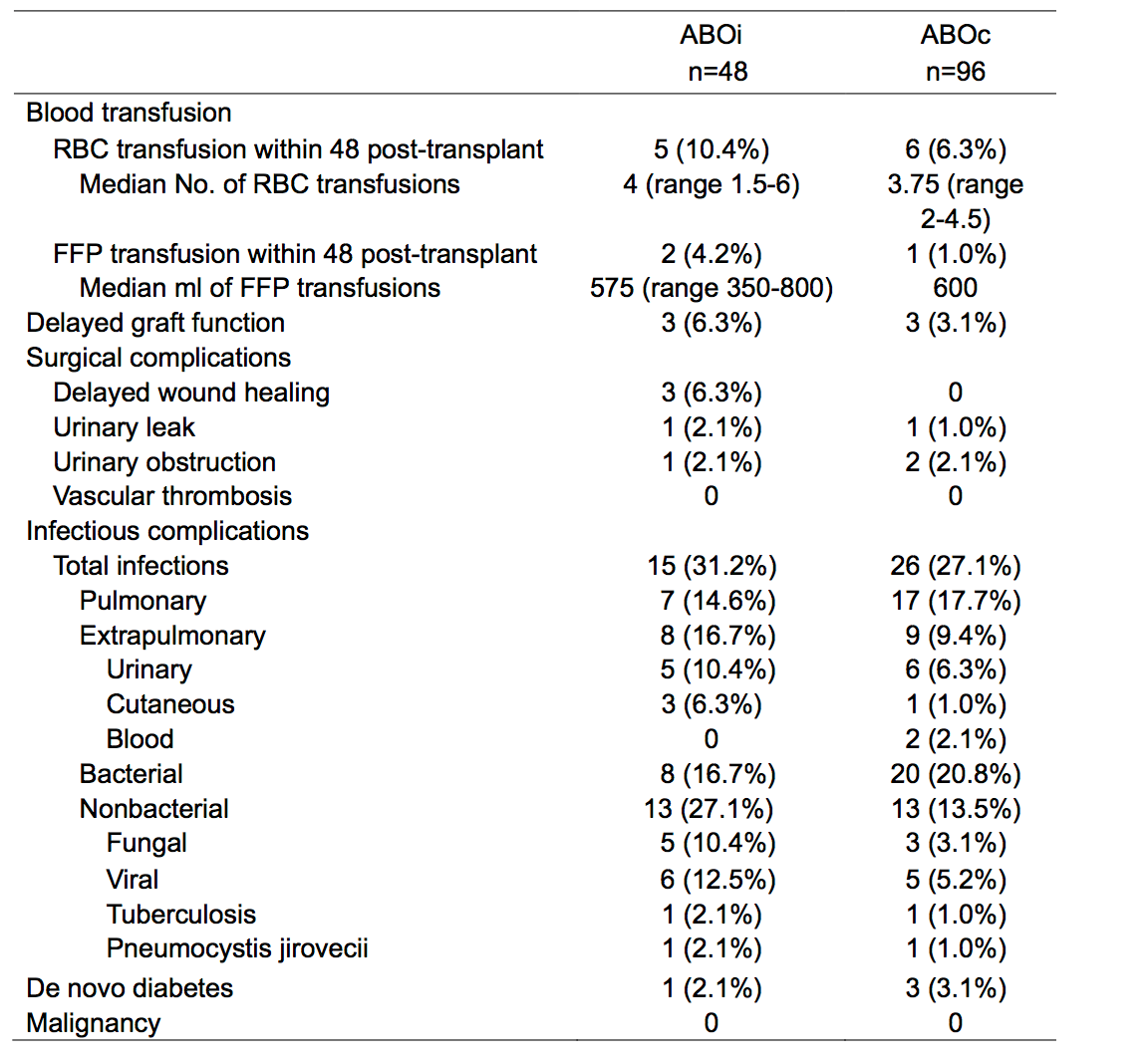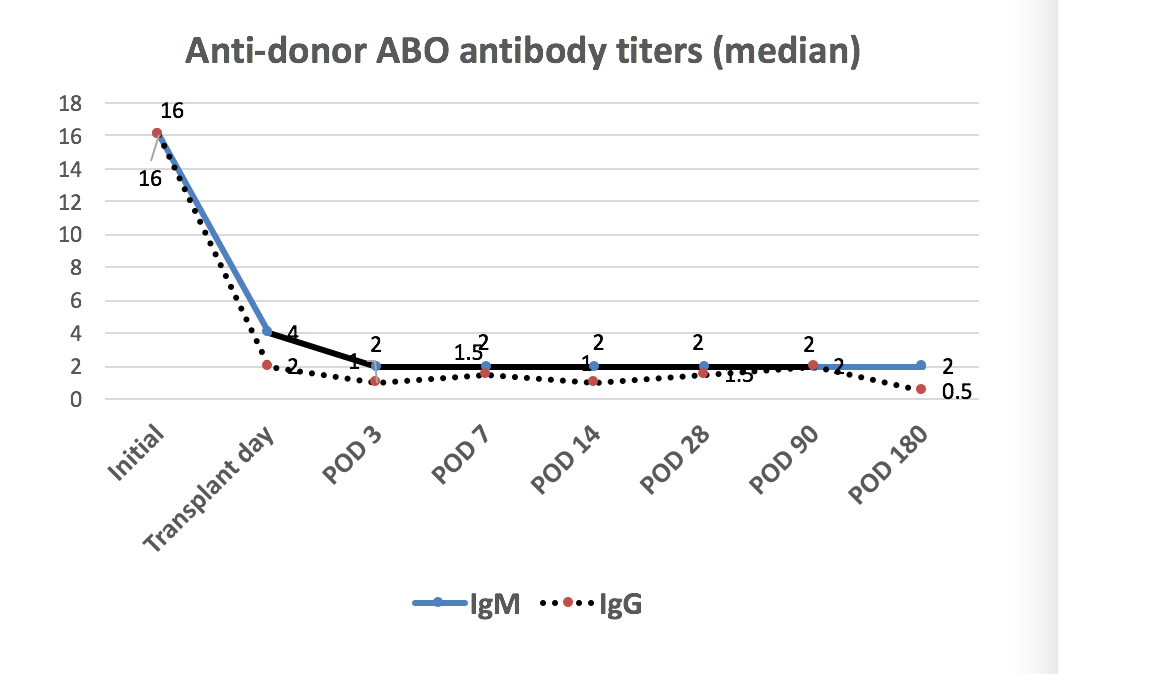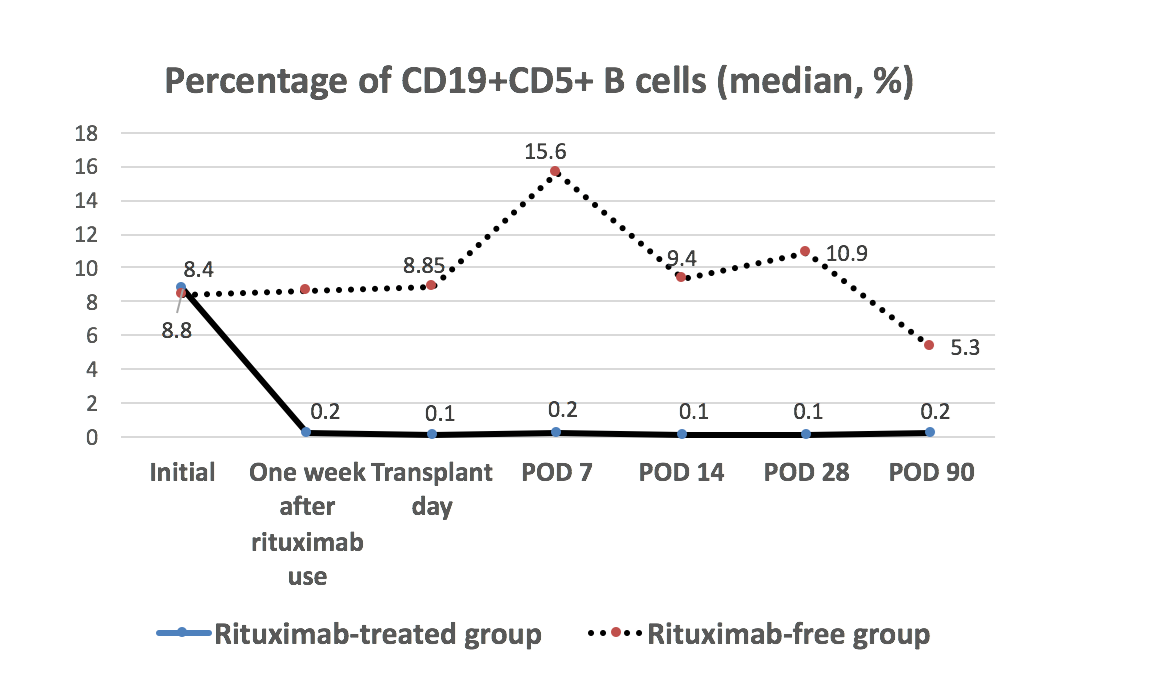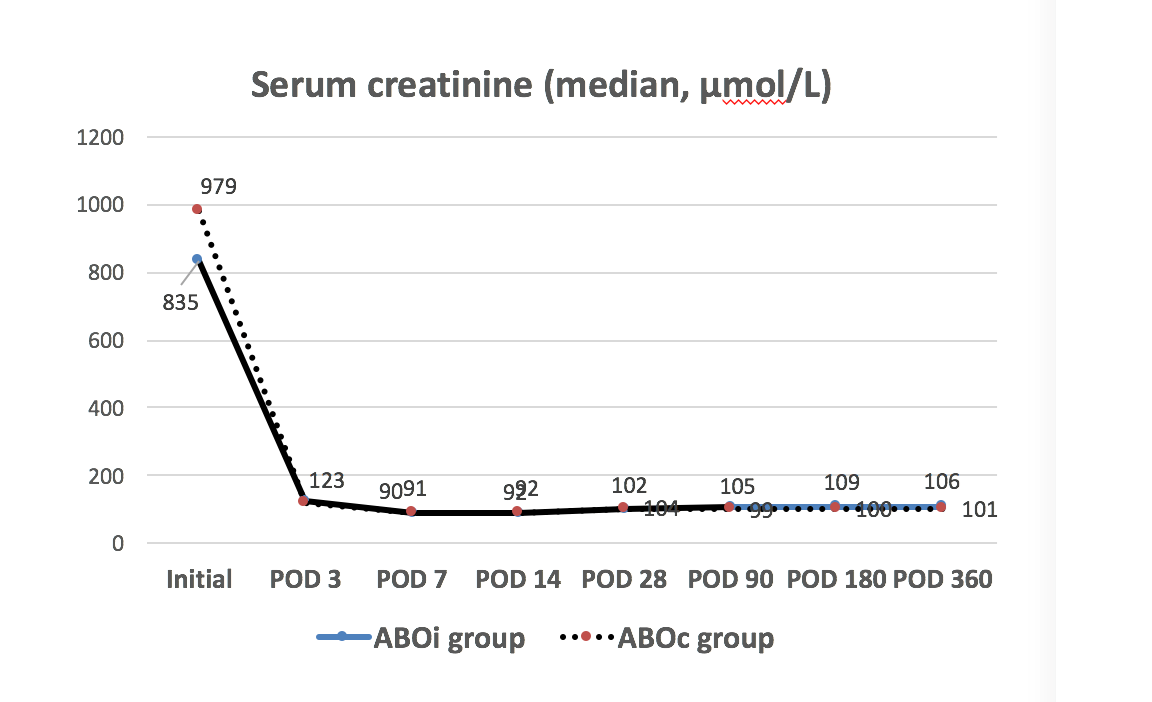Individualized Preconditioning for ABO-Incompatible Living Donor Kidney Transplantation: An Initial Report of 48 Cases from China
Department of Urology/Institute of Urology, West China Hospital of Sichuan University, Chengdu, China
Meeting: 2019 American Transplant Congress
Abstract number: B135
Keywords: IgG, Kidney transplantation, Safety
Session Information
Session Name: Poster Session B: Kidney Donor Selection / Management Issues
Session Type: Poster Session
Date: Sunday, June 2, 2019
Session Time: 6:00pm-7:00pm
 Presentation Time: 6:00pm-7:00pm
Presentation Time: 6:00pm-7:00pm
Location: Hall C & D
Session Information
Session Name: Poster Session B: Kidney Living Donor: Selection
Session Type: Poster Session
Date: Sunday, June 2, 2019
Session Time: 6:00pm-7:00pm
 Presentation Time: 6:00pm-7:00pm
Presentation Time: 6:00pm-7:00pm
Location: Hall C & D
*Purpose: Typically, the majority of centres that perform ABO incompatible (ABOi) kidney transplantation use fixed preconditioning protocols regardless of the initial titer. As experience in ABOi transplantation has grown, attempts have been made to reduce the intensity of preconditioning to decrease the incidence of infectious and hemorrhagic complications, either by reducing the dose of rituximab, or the amount of antibody removal used. After more than two-decade exploration, ABOi graft and patient outcomes are now comparable with ABO blood group-compatible (ABOc) kidney transplantation. With these encouraging results, the first successful ABOi kidney transplantation was introduced to China in 2007, where deceased organ donation is limited and legal recognition of kidney paired donation is absent. However, initial attempts of ABOi transplantation were sporadic, and associated with early graft loss and coagulation disorders. ABOi began at our institution in late 2014, and we adopted a regimen which varies both elements of the preconditioning strategy (rituximab and antibody removal) based on the initial titer. Our hypothesis is that preconditioning can be individualized according to baseline ABO antibody titres and patients with lower titres may require less preconditioning. This protocol allowed a widespread application of ABOi kidney transplantation in China and the number of transplant centres adopting our protocol is rapidly growing.
*Methods: A total of 48 consecutive cases of ABOi living donor kidney transplantation were performed from February 2007 to April 2018. This is the largest cohort study of ABOi kidney transplantation in China with the aim to share our initial experience on ABOi kidney transplantation, and assess the safety and efficacy of individualized preconditioning.Forty-eight ABOi living donor kidney transplantation recipients were compared with 96 ABOc living donor recipients.
*Results: There were no statistically significant differences in the graft survival, patient survival, rejection, infection or graft function post-transplant. There was a higher rate of extrapulmonary and nonbacterial infections in ABOi transplant recipients- this might be associated with the application of rituximab and antibody removal.
*Conclusions: Individualized preconditioning in ABOi kidney transplantation based on initial ABO blood group antibody titres led to comparable results to ABOc transplantation.
To cite this abstract in AMA style:
Wang X-. Individualized Preconditioning for ABO-Incompatible Living Donor Kidney Transplantation: An Initial Report of 48 Cases from China [abstract]. Am J Transplant. 2019; 19 (suppl 3). https://atcmeetingabstracts.com/abstract/individualized-preconditioning-for-abo-incompatible-living-donor-kidney-transplantation-an-initial-report-of-48-cases-from-china/. Accessed February 19, 2026.« Back to 2019 American Transplant Congress

